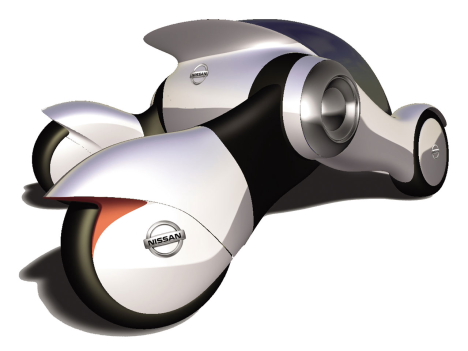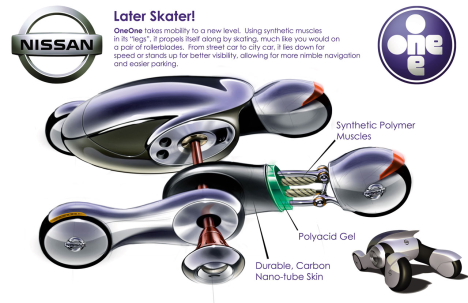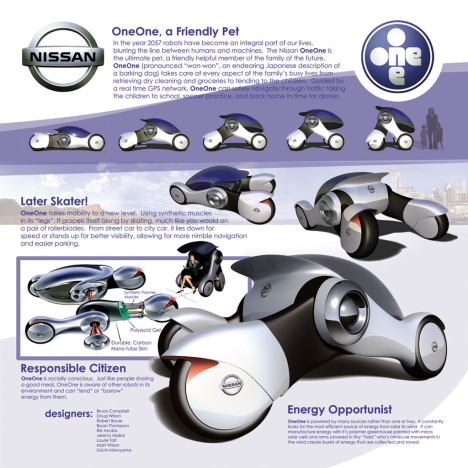Lynn Ischay/The Plain DealerBrandon Rutter uses a joystick to drive Dexter out of the garage at CWRU's Squire Valleevue Farm in February 2007. The driverless vehicle ran through maneuver drills at the farm to prepare for competition.
Whatever happened to Dexter, the robotic car developed by Case Western Reserve University students to navigate roads like a human?
After performing well in a national competition last fall against other driverless vehicles, Dexter has retired to post-race glory. The squat, computer-stuffed car is now on display at the Crawford Auto-Aviation Museum in Cleveland's University Circl
More than 50 students and faculty from the CWRU School of Engineering spent nearly a year readying Dexter (the name stands for "Deployable EXtreme Terrain Enabled Robot") for the 2007 DARPA Urban Challenge.
The competition, sponsored by the Pentagon's Defense Advanced Research Projects Agency, pitted teams from robotics-savvy universities and companies against each other.
The challenge was to produce a completely self-guided vehicle able to handle the kinds of situations city drivers face: detours, unexpected obstacles, busy intersections, merging with other traffic, and so on. The winner got $2 million and a chance to help design future autonomous military transports.
A Virginia engineering firm called ENSCO Inc. had built the original Dexter to compete in a simpler version of the DARPA challenge that took place in 2005 in the desert Southwest. For the 2007 Urban Challenge, ENSCO lent Dexter to CWRU.
Team Case heavily modified Dexter, adding advanced sensors and using a "biologically inspired" computer programming approach that mimicked the way living things evaluate information and make decisions in complex situations.
Of the 89 Urban Challenge entrants, Dexter and Team Case were among 35 semifinalists invited to show their stuff last November on a former Air Force base in California. The qualifying rounds included what may have been history's first collision between human-and computer-operated vehicles (fortunately not Dexter).
While Team Case's car performed well, in driving and parking tests, its scores were not high enough to make the finals. The winner was "Boss," a Chevy Tahoe built by robotics powerhouse Carnegie Mellon University.
Still, Dexter and its makers got their share of recognition. "Robocars," a 2008 Science Channel documentary on the Urban Challenge, featured the charismatic CWRU group. And Nortech, Cleveland's regional economic development organization, included Team Case among seven organizations it honored for developing "breakthrough technologies."
Since the contest, some Team Case members have graduated and begun work in robotics-related fields (including two who landed at ENSCO, Dexter's parent company). Others are pursuing advanced degrees and working on additional robotics projects, including building "Cutter," a self-guided lawnmower.
Team Case's leader, electrical engineering and computer science professor Wyatt Newman, is teaching a new "mobile robotics" course based on Dexter technology.
"We have no news of a 4th DARPA Grand Challenge," Newman reports, "but we anticipate we'll compete again, if one is announced."
— John Mangels






















































